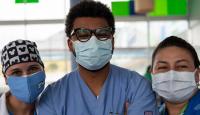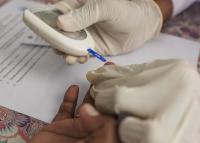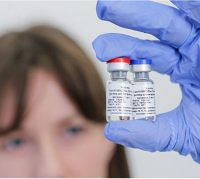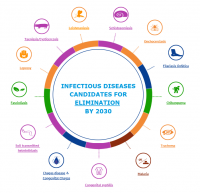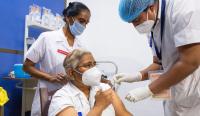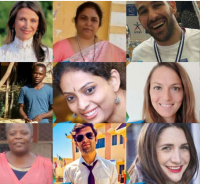You are here
News
-
05/14/2021 - Tens of thousands more doctors and nurses expected to be needed to manage ICUs in Latin America and the Caribbean. PAHO helps countries deploy medical teams and scale up oxygen production; donates vital supplies.
-
04/28/2021 - The second round of a World Health Organization “pulse survey“ reveals that over one year into the COVID-19 pandemic, substantial disruptions persist, with about 90% of countries still reporting one or more disruptions to essential health services, marking no substantial global change since the first survey conducted in the summer of 2020. Within countries, however, the magnitude and extent of disruptions has generally decreased. In 2020, countries reported that, on average, about half of essential health services were disrupted. In the first 3 months of 2021, however, they reported progress, with just over one third of services now being disrupted.
-
04/15/2021 - The World Health Organization’s new Global Diabetes Compact aims to bring a much-needed boost to efforts to prevent diabetes and bring treatment to all who need it ̶ 100 years after the discovery of insulin. The Compact is being launched on Wednesday (04/14) at the Global Diabetes Summit.
-
03/26/2021 - Drug use among older people globally has risen in recent years and countries must act to address this “hidden epidemic”, the International Narcotics Control Board (INCB) said in its annual report, issued on Thursday (25/03). The independent expert body also highlighted the negative impact the COVID-19 pandemic is having on the global supply of medicines, and on the well-being of people with mental health and substance abuse disorders.
-
03/16/2021 - One year since COVID-19 was officially declared a pandemic, the UN’s reproductive health agency said on Thursday that an estimated 12 million women have experienced disruptions to their family planning services.
-
03/02/2021 - Nearly 2.5 billion people worldwide ─ or 1 in 4 people ─ will be living with some degree of hearing loss by 2050, warns the World Health Organization’s (WHO) first World Report on Hearing, released today. At least 700 million of these people will require access to ear and hearing care and other rehabilitation services unless action is taken.
-
02/19/2021 - International partners working to achieve equitable distribution of COVID-19 vaccines appealed on Wednesday for the UN Security Council to ensure people caught in conflict have access to these lifesaving treatments.
-
02/01/2021 - A new World Health Organization (WHO) road map for neglected tropical diseases (NTDs) proposes ambitious targets and innovative approaches to tackle 20 diseases which affect more than a billion mainly poor people and which thrive in areas where access to quality health services, clean water and sanitation is scarce. Targets include the eradication of dracunculiasis (guinea worm) and yaws and a 90% reduction in the need for treatment for NTDs by 2030. `Ending the neglect to attain the Sustainable Development Goals: a road map for neglected tropical diseases 2021–2030´ aims to accelerate programmatic action and renew momentum by proposing concrete actions focused on integrated platforms for delivery of interventions, and thereby improve programme cost– effectiveness and coverage. It was endorsed by the World Health Assembly (WHA 73(33)) in November 2020.
-
01/18/2021 - A “me-first approach” to COVID-19 vaccines on the part of some countries and manufacturers is putting equitable access to these lifesaving treatments at risk, the head of the World Health Organization (WHO) warned on Monday (18/01).
-
01/08/2021 - People worldwide have overwhelmingly highlighted their faith in multilateralism to address global challenges, the results of a year-long survey by the United Nations have shown. The UN75 initiative was launched by Secretary-General António Guterres, in January last year, to understand the global public’s hopes and fears for the future, as well as their expectations and ideas for international cooperation, and for the UN in particular. More than 1.5 million people from 195 countries took part in the campaign through surveys and dialogues.

